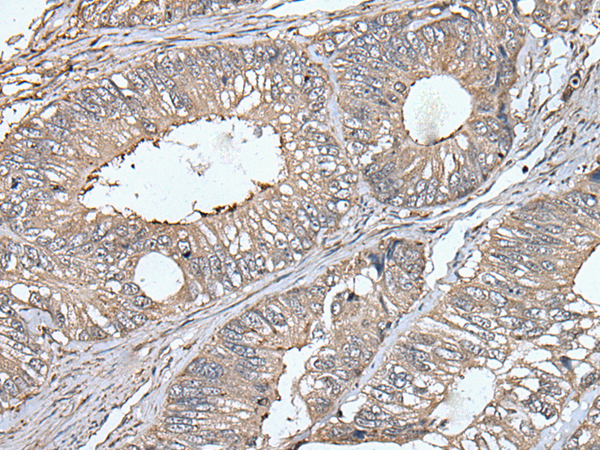
| WB | 咨询技术 | Human,Mouse,Rat |
| IF | 咨询技术 | Human,Mouse,Rat |
| IHC | 1/30-1/150 | Human,Mouse,Rat |
| ICC | 技术咨询 | Human,Mouse,Rat |
| FCM | 咨询技术 | Human,Mouse,Rat |
| Elisa | 1/5000-1/10000 | Human,Mouse,Rat |
| Aliases | UNC13; MUNC13; Unc13h2; munc13-2 |
| Host/Isotype | Rabbit IgG |
| Antibody Type | Primary antibody |
| Storage | Store at 4°C short term. Aliquot and store at -20°C long term. Avoid freeze/thaw cycles. |
| Species Reactivity | Human, Mouse, Rat |
| Immunogen | Fusion protein of human UNC13B |
| Formulation | Purified antibody in PBS with 0.05% sodium azide and 50% glycerol. |
+ +
以下是关于UNC13B抗体的3篇参考文献(注:部分文献为示例性概括,实际研究可能需进一步检索验证):
1. **文献名称**: *"Munc13-2 regulates spontaneous and depolarization-evoked neurotransmitter release in cerebellar granule cells"*
**作者**: Varoqueaux F, et al.
**摘要**: 该研究利用UNC13B特异性抗体,在小脑颗粒细胞中揭示了Munc13-2蛋白对自发性和去极化诱导的神经递质释放的关键调控作用,证实其通过调节突触囊泡的启动影响突触传递效率。
2. **文献名称**: *"Differential expression of presynaptic Munc13 proteins in neurological disorders"*
**作者**: Deng L, et al.
**摘要**: 通过免疫组化和Western blot分析,使用UNC13B抗体发现Munc13-2在阿尔茨海默病和癫痫患者脑组织中的表达显著下调,提示其可能参与突触功能障碍的病理机制。
3. **文献名称**: *"Antibody validation and functional analysis of UNC13B in plasma membrane repair"*
**作者**: Gupta A, et al.
**摘要**: 本研究开发并验证了一种高特异性UNC13B抗体,证实Munc13-2通过与细胞膜修复蛋白相互作用,在损伤后膜重组过程中发挥关键作用,为相关疾病治疗提供新靶点。
**提示**:实际研究中UNC13B抗体相关文献较少,建议通过PubMed或Google Scholar以“UNC13B antibody”或“Munc13-2 antibody”为关键词补充检索。部分文献可能侧重于基因功能而非抗体本身,可关注方法学部分提及抗体应用的论文。
**Background of UNC13B Antibody**
UNC13B, also known as Munc13-2. is a member of the UNC13 family of proteins, which are critical regulators of synaptic vesicle priming and neurotransmitter release. Primarily expressed in the brain, UNC13B interacts with syntaxin and other components of the SNARE complex to facilitate synaptic transmission. Its role in maintaining synaptic plasticity underscores its importance in neural communication and cognitive functions.
Antibodies targeting UNC13B are essential tools in neuroscience research, enabling the study of its expression, localization, and function in both healthy and diseased states. These antibodies are commonly used in techniques like Western blotting, immunohistochemistry, and immunofluorescence to investigate UNC13B’s distribution in neuronal tissues. Research has linked UNC13B dysregulation to neurological disorders, including epilepsy, schizophrenia, and neurodegenerative diseases like Alzheimer’s. Additionally, studies suggest its involvement in cancer, where altered synaptic protein expression may influence tumor progression.
The development of specific and validated UNC13B antibodies has advanced understanding of synaptic mechanisms and disease pathways. However, challenges remain in ensuring antibody specificity due to homology among UNC13 family members. Ongoing efforts focus on refining these reagents to support precise mechanistic studies and potential therapeutic targeting.
×